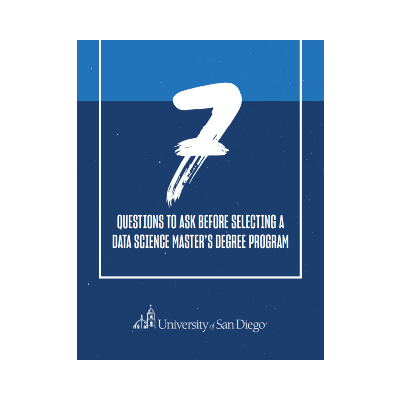Database engineers have become central to navigating the vast and complex digital information landscape. They safeguard organizational data, optimize data flow and support business operations. Their skills are especially relevant given the challenges presented by big data, artificial intelligence (AI) and the pressing concerns of cybersecurity.
The role of a database engineer has seen consistent growth across various industries, with the sheer volume of data generated today driving this increased demand. According to Domo Inc., as of 2020, 2.5 quintillion bytes of data were being produced daily. In 2021, that number was 97 zettabytes per day.
Adding to these challenges, the University of Maryland’s research indicates that a cybersecurity breach occurs every 39 seconds. These breaches can cause substantial financial implications for businesses, with costs averaging $4.45 million per incident in 2023.
Continue reading to learn about this profession, its significance and how you can pursue a successful career as a database engineer.
What Is Database Engineering?
Database engineering is a specialized discipline within computer science. It focuses on designing, developing, implementing, troubleshooting and managing secure database systems. The primary goal is to efficiently store, organize and retrieve data.
Here are some key aspects of database engineering:
Data-driven Decision-making
Businesses need accurate data to make strategic decisions. Database engineers structure data for efficient extraction and analysis.
Performance Optimization
Access to and use of data should be smooth. Database engineers work to optimize data systems to improve an organization’s productivity.
Security
Cybersecurity threats are a concern. Database engineers are responsible for implementing security measures to protect business data.
Scalability
As businesses expand, their data needs grow. Database engineers design and manage databases that can accommodate growth without performance issues.
Compliance
Regulations related to data privacy and protection are in place. Database engineers ensure that databases meet these standards to avoid legal repercussions and maintain a company’s reputation.
Database Engineering vs. Database Administration
Both database engineers and administrators play integral roles in managing an organization’s data, but their focus and responsibilities differ. While engineers design and build databases, database administrators focus on maintenance and optimization. Here’s a closer look at key differentiators.
| Database Engineer | Database Administrator (DBA) | |
|---|---|---|
| Primary Focus | Concentrates on the design, creation and implementation of new database systems tailored to specific organizational needs | Responsible for the day-to-day operation of existing databases. Their tasks include ensuring efficient performance, data integrity and security |
| Nature of Work | Often project-based, they work on establishing or modifying database systems to align with evolving requirements | Ongoing, as they continuously monitor, adjust and manage databases to ensure optimal health and address user needs |
Roles and Responsibilities of a Database Engineer
The role of a database engineer is multifaceted, encompassing a range of responsibilities central to an organization’s data management. So, what does a database engineer do on a daily basis? Here’s a breakdown of their primary tasks and duties:
Database Design and Development
Central to a database engineer’s job is designing databases that are efficient, secure and tailored to an organization’s unique needs. This involves developing the architecture, determining how to organize data and setting up relationships between data points.
Managing Data Flow
An effective database isn’t just about storage but also about ensuring data flows smoothly and can be accessed and modified without interruptions. This is vital for seamless business operations, whether processing transactions or generating reports.
Implementing Structures and Syntax
Engineers also implement and maintain specific database structures. This includes the creation of query syntax, managing data dictionaries and ensuring that data can be easily retrieved and updated.
Data Backup and Recovery
Given the importance of data, it’s essential to have systems in place to protect against data loss. Database engineers are responsible for setting up backup protocols, regularly backing up data and establishing recovery procedures should something go awry.
Migration and Upgrades
As technology evolves and business needs change, databases must also be adapted. Database engineers handle the migration of databases from one platform or structure to another. Additionally, they manage upgrades to ensure that the database software remains up-to-date and secure.
Required Skills, Qualifications and Certifications for a Database Engineer
Navigating the role of a database engineer requires technical know-how and interpersonal skills. Here’s a comprehensive breakdown of what’s needed for those aiming to excel in this profession:
Technical Skills
- SQL (Structured Query Language): Database engineers use SQL to manage and query data in relational databases.
- DBMS (database management systems): These systems handle the storage, retrieval and updating of data in a database.
- Programming knowledge: Familiarity with languages such as Python and Java can be beneficial, especially when tasks involve integrating databases with other software applications.
- Database design: It’s important to know how to effectively structure a database, from setting up tables to establishing data relationships.
Soft Skills
- Problem-solving: Unexpected challenges arise and a database engineer must be able to address these efficiently.
- Attention to detail: Accuracy in managing vast amounts of data is vital, as errors can have significant implications.
- Communication: Database engineers often interact with other stakeholders and need to convey technical information clearly.
Qualifications and Certifications
Pursuing certifications can provide a competitive edge in the job market.
- Oracle Certified Professional: This certification highlights expertise in handling Oracle-based database systems.
- Microsoft Certified – Azure Database Administrator Associate: As more organizations use cloud services for database operations, this certification demonstrates knowledge in managing databases on the Microsoft Azure platform.
Equipped with these skills and qualifications, a database engineer is well-prepared to handle the complexities and demands of the role.
Salary and Career Outlook
The salary of a database engineer is a critical consideration for many entering or advancing in the field. According to Indeed, the average annual salary stands at $117,610. This figure, however, varies based on several factors, including the following.
- Career stage: Entry-level database engineers might start with earnings around $77,713, while seasoned professionals with extensive experience or those in top-tier companies can command salaries up to $177,989.
- Educational background: Those with advanced degrees have the potential to earn a higher salary, reflecting the added expertise and knowledge they bring to their roles.
- Geographical differences: The location of a company can influence compensation, with some regions — especially major tech hubs — offering higher pay due to increased demand and cost of living.
- Experience and skills: Specialized skills, advanced certifications and impactful contributions can propel a database engineer to the higher end of the salary spectrum.
When it comes to job outlook, Zippia projects 9% growth in this role through 2028. The continuous emphasis on data-driven operations and the importance of adept database systems highlight the ongoing need for database engineers. This steady demand ensures job stability and potential advancements for individuals in this profession.
Essential Tools
A successful database engineer often leverages a combination of databases, languages, tools and platforms to ensure efficient data storage, retrieval and analysis. Understanding and mastering these tools are vital for their day-to-day tasks and long-term career success.
Databases
- Oracle, SQL Server, MySQL: These are popular relational database management systems (RDBMS) that facilitate data storage and retrieval. A database engineer should be adept at setting up, querying and maintaining these systems to support an organization’s data requirements.
Languages
- SQL: The primary language for querying and manipulating relational databases
- Python: Often used for scripting, automating database tasks and data analysis
- Java: An object-oriented language that can be used to develop applications interacting with databases
- C++: Useful for system-level programming or when performance is critical
- Scala: Frequently used in conjunction with big data platforms such as Spark
Tools
- Data modeling: Assist in creating visual representations of data structures, ensuring clarity in design and architecture
- ETL: Essential for the Extract, Transform, Load process, these tools are crucial when migrating data between systems or when preparing data for analysis
Platforms
- Hadoop, Hive and Spark: These big data platforms enable database engineers to handle vast volumes of data, ensuring scalable storage and efficient processing. For instance, Spark, often used with Scala, allows for in-memory data processing, speeding up tasks that involve large datasets.
These tools and platforms are not standalone entities — they work together to ensure smooth data operations. Databases provide the foundational storage, languages enable querying and interaction, tools offer support functions like data manipulation and visualization, and platforms ensure that when data volume grows, it can be managed efficiently.
How to Become a Database Engineer in 6 Steps
Pursuing a career as a database engineer involves a series of strategic steps to ensure success and competency.
Step 1: Earn a Bachelor’s Degree
Start by obtaining a bachelor’s degree in computer science, statistics or a related field. This provides a solid foundation in the fundamentals required for database engineering.
Step 2: Gain Experience
Securing internships or entry-level roles in data analysis or database management offers realistic exposure. This hands-on experience is vital in understanding real-world challenges and building practical skills.
Step 3: Pursue a Master’s Degree
According to Zippia, 18.9% of database engineers hold a master’s degree. Considering advanced programs, such as USD’s Master of Science in Applied Data Science, can deepen your knowledge. These programs offer specialized skill sets, making you more attractive to potential employers.
Step 4: Obtain Certifications
Professional certifications help validate your existing skills and demonstrate your commitment to the field. These credentials can be key differentiators in competitive job markets.
Step 5: Master Essential Tools
As a database engineer, you must be proficient in various databases, languages and tools. Investing time to learn and master tools such as Oracle, SQL Server and languages like Python is crucial.
Step 6: Stay Updated
The world of database engineering is ever-evolving. Continually updating your skills and staying informed about the latest advancements ensures you remain relevant and efficient in your role.
By following this roadmap, aspiring database engineers can position themselves effectively in the industry, bridging the gap between an analyst role and the coveted position of a database engineer.
[RELATED RESOURCE] Ready to advance your career and increase your earning potential? Download our guide to selecting the right master’s program for database engineers.
Career Path and Future Opportunities for a Database Engineer
Database engineers, regarded as crucial assets in many industries, often have a structured career progression. Their journey often begins with roles that give them foundational experience and can lead to more specialized and senior positions as they grow in the domain.
Preceding Roles
Before stepping into the role of a database engineer, many professionals often work as data analysts or junior database administrators. These positions provide the essential groundwork in understanding data, its organization and the early stages of its management.
Potential Future Roles
With experience and further skill enhancement, a database engineer can progress to senior roles such as a senior database engineer. For those with a vision for system-wide data design, becoming a database architect might be the next step. These roles delve deeper into complex data challenges, requiring broader skills and a strategic mindset.
Growth Opportunities
The future is promising for database engineers. Keeping a pulse on industry trends reveals the increasing importance of data in decision-making, innovation and operational efficiency. As businesses continue to realize the value of data, the demand for experts to manage and harness this data will likely rise.
Industries for Database Engineers
Their expertise isn’t limited to one sector; database engineers are sought after across multiple industries, including the following.
- Tech
- From software development companies and IT service providers to budding tech startups, the tech industry remains a significant employer of database engineers.
- Finance
- From banks and insurance companies to broader financial services firms, the finance sector relies heavily on robust data management.
- Healthcare
- Hospitals, pharmaceutical companies and health insurance entities require database engineers for secure, effective patient and research data management.
- Retail & E-commerce
- The surge in online shopping and the data it generates means online retailers and even large brick-and-mortar chains need efficient database management.
- Government
- Both state and federal agencies rely on database engineers to manage, secure and analyze vast amounts of data.
- Telecommunications
- As telecom companies grapple with large volumes of user data, they turn to database engineers to ensure efficient data storage and retrieval.
Database Engineering: The Path Ahead
Database engineers play a vital role in data-centric operations within organizations. Their expertise ensures not only the availability of data but also its security and optimization.
Considering a career as a database engineer presents numerous opportunities, given the significance of data in contemporary decision-making. This field offers technical challenges and the chance to contribute meaningfully across various sectors.
For those exploring this profession or looking to advance their skills, review our checklist, 7 Questions To Ask Before Selecting An Applied Data Science Master’s Degree Program, for guidance.




